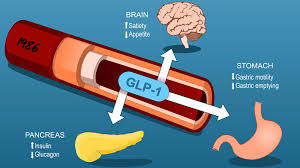The landscape of health and weight loss is undergoing a powerful transformation. For decades, fitness was synonymous with gym memberships, diet books, and high-intensity classes. So, today, a new model is emerging—one that blends technology, personalised coaching, and medical science. At the heart of this revolution are online training platforms, behavioural coaching, and the rapidly expanding world of weight-loss drugs like GLP-1 receptor agonists. However, these tools are reshaping how we approach long-term health.
The Rise of Online Training
One of the most significant shifts is the move toward online fitness coaching. Once considered a niche, virtual coaching has exploded post-pandemic, offering a more flexible, accessible, and personalized way to get in shape.
Benefits include:
- Workout anywhere: Train at home, outdoors, or in the gym—with full accountability.
- Customized plans: Coaches can design strength, mobility, and nutrition programs tailored to individual goals, ages, and limitations.
- Behavioral support: Moreover, online programs often include mindset coaching and habit-building, which are essential for sustainable weight loss.
Online coaching removes the guesswork and builds consistency—especially for clients who need structure but can’t commit to in-person sessions.
The Game-Changer: GLP-1 Medications

Enter GLP-1 receptor agonists, a class of medications originally developed to treat type 2 diabetes. Today, they are transforming the weight loss industry.
Medications like semaglutide (Ozempic, Wegovy) and tirzepatide (Mounjaro, Zepbound) help regulate appetite, improve insulin sensitivity, and also lead to significant weight reduction. They work by mimicking GLP-1, a hormone that influences blood sugar and satiety signals in the brain.
Recent studies show that patients using these drugs can lose 15% to 25% of their body weight over a year—results previously only seen with bariatric surgery.
The Future: Integration Over Isolation
Despite the hype, weight loss medications are not magic pills. They work best when combined with. lifestyle coaching, nutrition planning, and physical activity.

The future of health and weight loss will likely be integrative:
- Virtual fitness meets medication management
- Behavioral coaching supports long-term change
- Wearable technology tracks progress and keeps clients engaged
This hybrid model creates a complete ecosystem for success. One that treats the mind, body, and biology.
What This Means for Clients
Whether you’re trying to lose 20 pounds or manage chronic conditions, you now have options that were unimaginable a decade ago.
- You can work with a virtual coach who keeps you accountable.
- Also, you can speak with your doctor about whether GLP-1 medications are appropriate for you.
- You can use smart tech to measure your steps, sleep, heart rate, and food intake—all from your phone.
Final Thoughts
In conclusion, the future of health and weight loss is not a choice between fitness and medicine. It’s a fusion. It’s a world where we use science, technology, and coaching to create lasting, realistic transformations. As we move forward, those who embrace this integrative approach will see the best results—not just in pounds lost, but in lives reclaimed.
So this is the new era. Not quick fixes. Sustainable elevation.
Against All Odds Health And Fitness




